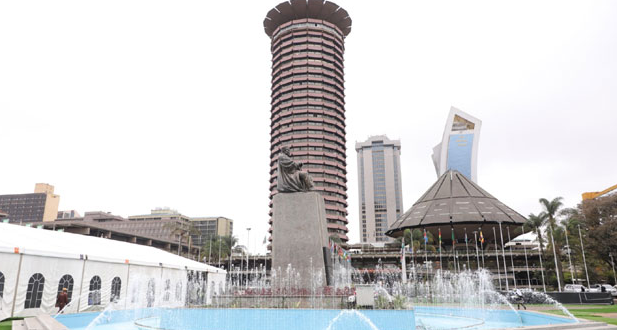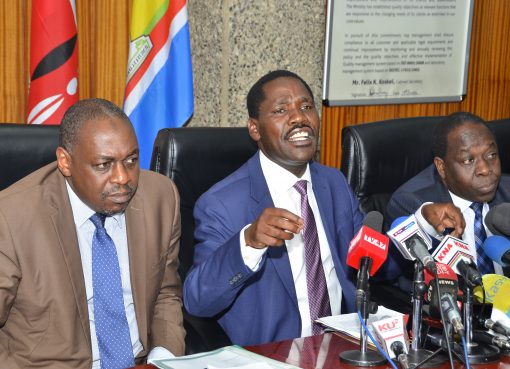Greenpeace Africa, an environmental lobby group, says with climate finances eclipsed by clamour for profits from fossil fuels, there is a need to set aside Climate Damage Tax (CDT) on polluters to fund loss and damage reparation.
Africa is currently said to be bearing the brunt of the worsening climate conditions, despite contributing less than 2 per cent of all global carbon emissions.
This year’s United Nations Framework Convention on Climate Change Conference (UNFCCC) in Baku officially opened its doors to global leaders Monday and is expected to run until November 22.
“African nations possess immense potential to lead the global transition to renewable energy, but this potential is undermined by continued fossil fuel exploitation and inadequate climate finances. The implantation of the COP29 agreement must deliver concreate plans aligned with the 1.5 per cent goal, specifically on a new collective quantified goal on finance. We refuse to let COP29 become another platform for empty promises, promoting false solutions and greenwashing.” said Fred Njehu, Greenpeace Africa Political Strategist, through a press statement sent to media houses on November 11.
According to the environmental campaigner, climate change could cost African economies 15 per cent of their GDP by 2030.
In addition, the NGO says that despite Africa having 40 per cent of global solar potential, it only receives only 2 per cent of renewable energy investments and therefore the need for the continent to tap more into renewable energy sources.
Among other demands by Greenpeace Africa include a push for a significant increase in public climate finance through the New Collective Quantification Goal on Climate Finance (NCQG), pushing for concrete commitments for a rapid and just transition away from fossil fuels, and recognition and elevation of African voices, including youth activists, indigenous communities, and civil society organisations, in addressing the climate crisis.
“Africa stands at a critical crossroads. Establishing an ambitious New Collective Quantified Goal is crucial for scaling up climate finance to developing countries, particularly in Africa, to tackle the scale of the prevailing crisis,” continues the press statement.
“As world leaders discuss, they should bear in mind the devastating droughts in the Horn of Africa, catastrophic flooding, and food security across the continent. Without scaled-up climate finance that is fit for purpose, most African countries will be unable to deliver on their Nationally Determined Contributions (NDCs).”
Last year, the environmental lobby group challenged African leaders to take a decisive lead in pushing for ecologically friendly sources of energy against the backdrop of worsening global climate.
Making the call ahead of the first Africa Climate Summit (ACS) that was held in Nairobi between September 4 and September 6, Greenpeace Africa had called on African governments to act with speed to minimise the devastating impacts of the climate crisis on the livelihoods of their citizens.
Through a dispatch to the summit’s secretariat, the nongovernmental organisation had warned against turning Africa into the frontier of a new scramble for oil, gas, and coal, spearheaded by her former colonial masters.
“As East Africa is reeling from its worst drought on record, extreme heat and wildfires are ravaging northern Africa, and flash floods are hitting countries across the continent. The science is clear on what drives the climate crisis: long-term shifts in temperatures and weather patterns caused by greenhouse gas emissions that blanket the Earth and trap the sun’s heat. This crisis would not happen without human activities like the extraction and burning of fossil fuels such as coal,oil,l and gas,” said the NGOs Executive Director, Dr. Oulie Keita, through a press statement.
“While greedy corporations continue to scramble for Africa’s coal, oil, and gas, more severe and frequent floods and droughts are shattering communities across the continent. This human-induced climate crisis will only become more catastrophic if we collectively fail to act,” he added.
Greenpeace cites an increase in the number of droughts, erratic rains, and floods in many African countries, including Kenya, as a wakeup call for the leaders to scramble resources and expertise in addressing the grave danger posed by the effects of climate change.
Dr. Keita said such ecological changes, which are becoming more frequent by the decade, are to blame for, among others, the deteriorating food crisis currently plaguing dozens of African countries.
This, on the other hand, has pushed millions of people to the brink of starvation and forced many countries to spend colossal amounts of their meagre resources on food importations.
“Africa’s dependence on fossil fuel-powered energy is stealing our future and leading us to an ever-worsening climate disaster. Africa has the potential to build greener and better than previous generations did if we act now together. We have a collective responsibility and the power to minimise the harms of the climate crisis,” he stated.
“Our governments and leaders must have the courage to reimagine an alternative future and chart a new developmental path away from the destructive models of the West—a path that prioritises people and the planet over profit. This summit is an opportunity for genuine dialogue, where our leaders, civil society organisations, scientists, youth activists, and other stakeholders can assert our perspectives, needs, and solutions.”
Greenpeace has been pushing for the adoption of a common agenda by African leaders that will see the continent transit from dependence on fossil fuels to renewable energy sources such as solar and geothermal that are not only ecologically friendly but affordable and sustainable in the long run.
Kenya became the first country on the continent to host the inaugural Africa Climate Summit last year with the goal of coming up with a common continental voice on tackling emerging issues on climate through the Nairobi Declaration.
The summit took place a few months ahead of the COP28 meet that was hosted by the UAE towards the end of last year.
More than 14,000 participants from 136 countries, which included 20 African heads of state and representatives of international organisations and civil society, among others, attended the historic two-day event.
Among the high-profile guests who addressed the Summit (whose theme was “Driving Green Growth and Climate Finance Solutions for Africa and the World”) included President Dr. William Ruto and UN Secretary General Antonio Guterres.
By Samuel Maina




